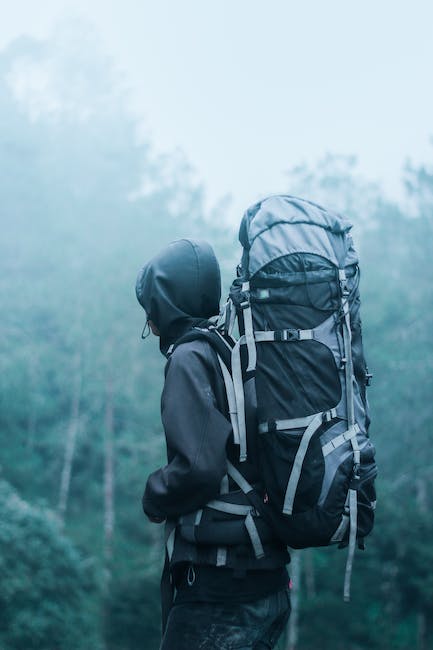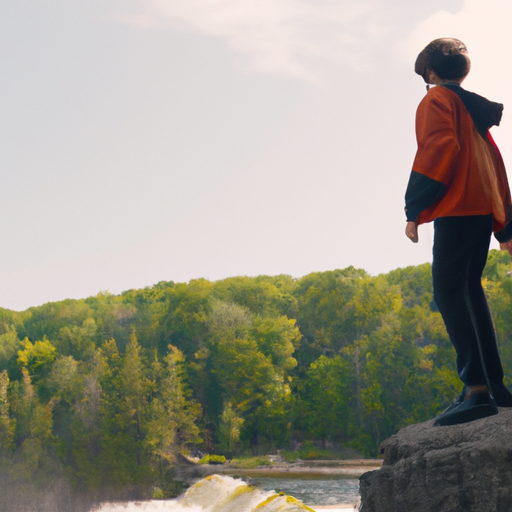
-
Table of Contents
“Living with a rare disease won’t stop me from exploring the world!”
My name is John and I have a rare disease that affects my immune system. I was diagnosed with this condition when I was a teenager and it has been a difficult journey ever since. Despite the challenges I have faced, I have never given up on my passion for backpacking. I have been able to find ways to make my backpacking trips enjoyable and safe, and I am determined to continue exploring the world. In this article, I will share my story and provide tips for other people with similar conditions who want to go backpacking.
How to Prepare for Backpacking with a Rare Disease
Backpacking with a rare disease can be a daunting prospect, but with the right preparation, it can be a rewarding and enjoyable experience. Here are some tips to help you prepare for a successful backpacking trip.
1. Research Your Destination: Before you embark on your backpacking trip, it is important to research your destination thoroughly. Make sure you are aware of any potential health risks, such as extreme temperatures, altitude, or water quality. Additionally, research the availability of medical care in the area, as well as any potential restrictions on activities due to your rare disease.
2. Pack Appropriately: Make sure you pack all the necessary supplies for your trip, including any medications or medical equipment you may need. Additionally, pack clothing and gear that is appropriate for the climate and terrain of your destination.
3. Consult Your Doctor: Before you go, consult your doctor to make sure you are physically able to undertake the trip. Your doctor can also provide advice on how to manage your rare disease while traveling.
4. Make a Plan: Make sure you have a plan for your trip, including a detailed itinerary and a list of emergency contacts. Additionally, make sure you have a plan for managing your rare disease while on the road.
5. Stay Connected: Make sure you have a way to stay connected while on the road, such as a satellite phone or a GPS device. This will allow you to stay in touch with family and friends, as well as access medical help if needed.
By following these tips, you can ensure that your backpacking trip is a safe and enjoyable experience. With the right preparation, you can make the most of your trip and create lasting memories.
The Benefits of Backpacking for People with Rare Diseases

Backpacking is an increasingly popular activity for people of all ages and abilities. For those living with rare diseases, backpacking can provide a number of physical and mental health benefits.
First, backpacking can be an excellent form of exercise. It is a low-impact activity that can help to improve cardiovascular health, strengthen muscles, and increase flexibility. Additionally, backpacking can help to improve balance and coordination, which can be especially beneficial for those with rare diseases that affect motor skills.
Backpacking can also be a great way to reduce stress and anxiety. The physical activity can help to release endorphins, which can improve mood and reduce stress. Additionally, the natural environment of backpacking can provide a calming and peaceful atmosphere, which can help to reduce stress and anxiety.
Backpacking can also be a great way to connect with nature and the outdoors. For those with rare diseases, this can be especially beneficial, as it can provide a sense of freedom and independence. Additionally, backpacking can provide an opportunity to connect with others who share similar interests and experiences.
Finally, backpacking can be a great way to explore new places and cultures. For those with rare diseases, this can be especially beneficial, as it can provide a sense of adventure and exploration. Additionally, backpacking can provide an opportunity to learn more about different cultures and ways of life.
Overall, backpacking can provide a number of physical and mental health benefits for those living with rare diseases. It can be an excellent form of exercise, reduce stress and anxiety, and provide an opportunity to explore new places and cultures. For those with rare diseases, backpacking can be an excellent way to stay active and healthy.
Overcoming Challenges of Backpacking with a Rare Disease
Backpacking is an activity that many people enjoy, but for those with a rare disease, it can be a challenge. However, with the right preparation and knowledge, it is possible to overcome the obstacles and have a successful backpacking experience.
The first step is to understand the limitations of your condition. It is important to know what activities you can and cannot do, and to plan accordingly. For example, if you have a condition that affects your mobility, you may need to plan for shorter hikes or plan to take more breaks. Additionally, you should be aware of any medications or treatments that you may need to take while on the trail.
The next step is to plan your trip carefully. Make sure to research the terrain and the weather conditions of the area you plan to visit. This will help you determine what type of gear you will need and how much food and water you should bring. Additionally, you should plan for any medical needs you may have while on the trail. This could include bringing extra medications, a first aid kit, and any other supplies you may need.
Finally, it is important to be prepared for any unexpected events. Make sure to bring a map and compass, and to let someone know where you are going and when you plan to return. Additionally, it is important to be aware of your surroundings and to be prepared for any potential hazards.
Backpacking with a rare disease can be a challenge, but with the right preparation and knowledge, it is possible to have a successful and enjoyable experience. By understanding your limitations, planning your trip carefully, and being prepared for any unexpected events, you can make the most of your backpacking adventure.
How to Stay Positive While Backpacking with a Rare Disease
Backpacking with a rare disease can be a difficult and challenging experience. It can be easy to become overwhelmed and discouraged by the physical and emotional demands of the journey. However, it is possible to stay positive and make the most of your backpacking experience. Here are some tips to help you stay positive while backpacking with a rare disease.
1. Set realistic goals. It is important to set realistic goals for yourself while backpacking. This will help you stay motivated and focused on the journey. Consider your physical and emotional limitations and plan accordingly.
2. Take breaks. Don’t be afraid to take breaks when you need them. Listen to your body and take the time to rest and recharge.
3. Connect with others. Connecting with other travelers who have similar experiences can be a great way to stay positive. Sharing stories and advice can help you feel less alone and more supported.
4. Practice self-care. Make sure to take care of yourself while backpacking. Eat healthy, get enough sleep, and take time to do activities that make you feel good.
5. Focus on the positives. It can be easy to focus on the negative aspects of backpacking with a rare disease. Instead, try to focus on the positives and the opportunities that come with it.
By following these tips, you can stay positive while backpacking with a rare disease. Remember to take care of yourself and focus on the positives. With the right attitude, you can make the most of your backpacking experience.
Q&A
1. What is the name of your rare disease?
The name of my rare disease is Common Variable Immunodeficiency (CVID).
2. How does your rare disease affect your immune system?
My rare disease affects my immune system by causing a decrease in the production of antibodies, which are proteins that help fight off infections. This makes me more susceptible to infections and illnesses.
3. What measures do you take to protect yourself while backpacking?
I take extra precautions to protect myself while backpacking, such as washing my hands frequently, avoiding contact with people who are sick, and carrying hand sanitizer. I also make sure to get plenty of rest and eat a healthy diet.
4. What advice would you give to someone else with a rare disease who wants to go backpacking?
My advice would be to talk to your doctor about your plans and make sure you are taking all the necessary precautions to protect yourself. Make sure you are up to date on all your vaccinations and medications, and be aware of your body and any changes that may occur. Also, don’t be afraid to ask for help if you need it.This story is a testament to the strength and resilience of the human spirit. Despite the challenges of living with a rare disease that affects the immune system, the protagonist has never given up on their passion for backpacking. This story serves as an inspiration to us all to never give up on our dreams, no matter what obstacles we may face.



